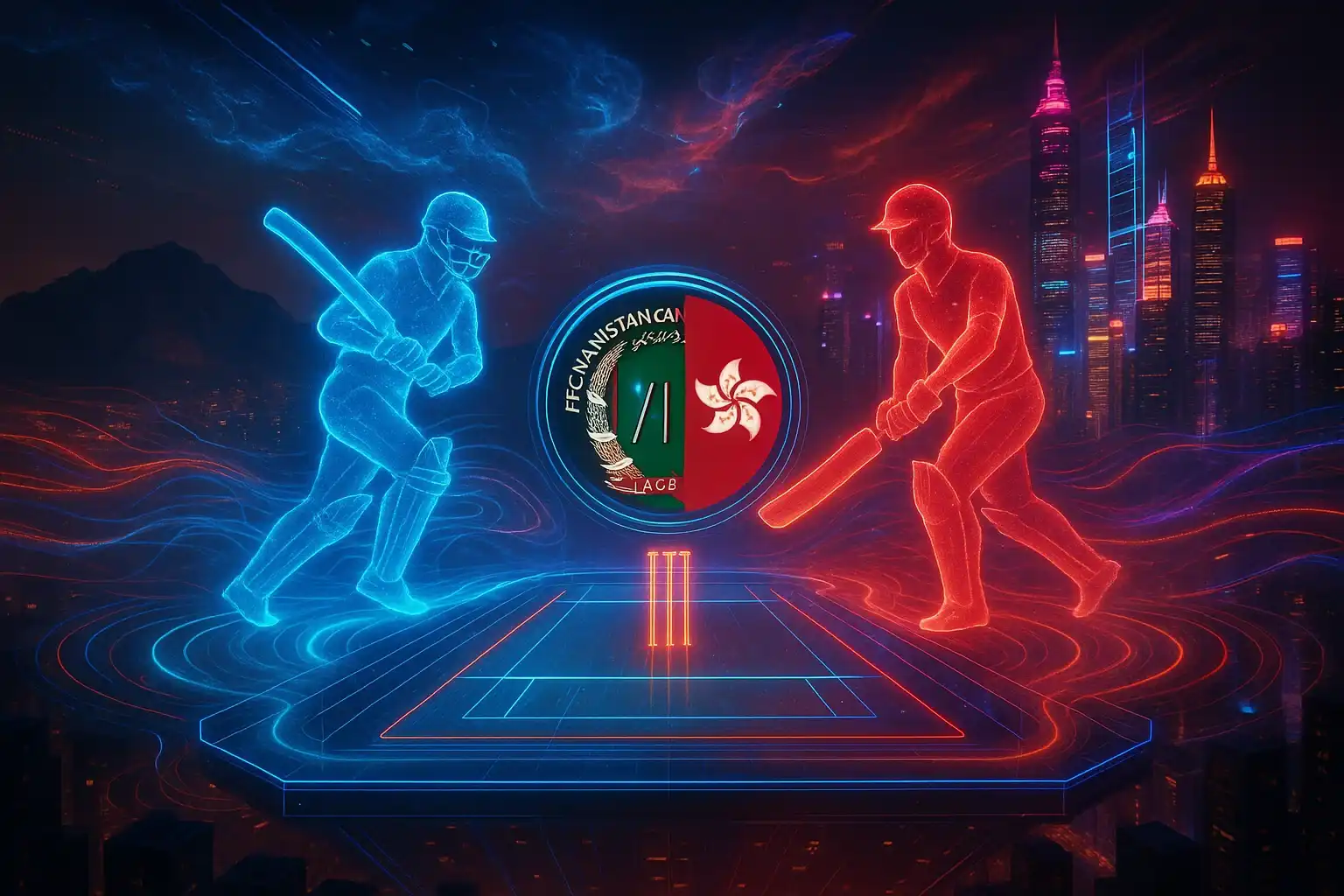Cricket has produced some of the most fascinating rivalries in sports, but one of the fastest-growing rivalries in the shortest format is the Afghanistan Pakistan T20 rivalry history. What began as a one-sided battle has evolved into a fierce contest where every match carries pride, passion, and high drama.

This rivalry isn’t just about runs and wickets—it is deeply tied to culture, geopolitics, and cricketing identity. For fans, it is more than just a game; it represents stories of growth, resilience, and the arrival of Afghanistan on the world stage.
First Clash in T20Is
The Afghanistan Pakistan T20 rivalry history began on December 8, 2013, in Sharjah. In their first-ever T20I encounter, Pakistan survived a scare to win by 6 wickets with one ball remaining. Afghanistan’s spirited performance shocked many, and it was clear they were not here just to participate but to compete.

Since that evening in the UAE, matches between the two teams have been highly anticipated, particularly among fans from both nations and the global cricket community.
Head-to-Head Records and Player Performances
While Pakistan dominated in the early years, Afghanistan’s steady rise has made the contests increasingly even. Let’s break down some key records in Afghanistan Pakistan T20 rivalry history records and stats:
- Most Runs (Top 3): Mohammad Nabi (Afghanistan), Najibullah Zadran (Afghanistan), Babar Azam (Pakistan).
- Most Centuries: Interestingly, no player has yet scored a century in this rivalry.
- Most Wickets (Top 3): Rashid Khan (Afghanistan), Fazalhaq Farooqi (Afghanistan), Junaid Khan (Pakistan), and Fareed Ahmad (Afghanistan).
In the broader context of Afghanistan Pakistan T20 rivalry history, Afghanistan’s bowling attack, spearheaded by Rashid Khan, has often troubled Pakistan’s batters. Pakistan, however, have relied on the consistency of Babar Azam and the experience of their seamers to maintain an edge in these tightly contested encounters.
For official records, you can always visit the Afghanistan Cricket Board and Pakistan Cricket Board, both of which regularly update player and team statistics.
Afghanistan Pakistan T20 Close Matches
The intensity of this rivalry is best captured through their nail-biting encounters. Some of the Afghanistan Pakistan T20 rivalry history close matches have become part of cricket folklore.
- Asia Cup 2022 (Sharjah): Pakistan won by just one wicket in a dramatic finish. Naseem Shah, batting at No. 10, smashed two sixes in the final over to secure a famous victory. Tempers flared during this match, with an altercation between Asif Ali and Fareed Ahmad further heating the atmosphere.
- Sharjah Series 2023: Afghanistan scripted history by beating Pakistan for the first time in T20Is. They went on to win the three-match series 2-1, marking a turning point in the Afghanistan Pakistan T20 rivalry history.

The balance of power has shifted in recent years, making each clash unpredictable and thrilling for fans.
Why the Rivalry Matters
This isn’t just about cricketing numbers; the Afghanistan Pakistan T20 rivalry history carries a deeper meaning:
- Emergence of Afghanistan: From a war-torn country with limited facilities to beating giants like Pakistan, Afghanistan’s journey is inspirational. Their progress shows cricket’s power to unite and uplift a nation.
- Asymmetry of Experience: Pakistan is a World Cup-winning nation with decades of cricketing tradition, while Afghanistan is still in its early years on the big stage. Yet, the narrowing gap highlights Afghanistan’s rapid progress.
- “Master and Student” Dynamic: Many Afghan cricketers, including stars like Mohammad Nabi and Rashid Khan, developed their skills in Pakistan’s domestic system or refugee camps. This adds a personal twist to the rivalry.
For fans in the UAE, matches in Sharjah and Dubai have special significance, with both teams enjoying strong support. The Emirates Cricket Board has often hosted these high-voltage contests.
Beyond Cricket: Politics and Passion
The Afghanistan Pakistan T20 rivalry history also mirrors the geopolitical complexities between the two nations. Shared borders, cultural ties, and political tensions have spilled onto the cricket field, intensifying the emotions around every game.
For Afghanistan, beating Pakistan isn’t just about points on the board—it’s about identity, pride, and international recognition. Their fans celebrate victories like festivals, showing how deeply cricket is woven into their national spirit.
On the other hand, Pakistan views Afghanistan as a rising neighbor eager to challenge their cricketing supremacy. Each clash is a reminder that regional cricket is changing, with new challengers pushing traditional giants. That’s why the Afghanistan Pakistan T20 rivalry history has become one of the most fascinating narratives in modern cricket.
Future Encounters and Tri-Series
The Afghanistan Pakistan T20 rivalry history is set to grow further with more bilateral series and multi-nation tournaments. Both teams will participate in upcoming events such as the UAE T20I Tri-Series 2025, which also features Ireland. These matches promise to add more chapters to their already thrilling rivalry.
For real-time stats and coverage, platforms like Cricbuzz provide detailed insights into fixtures, player records, and live commentary.
-
Did any Afghan players learn cricket in Pakistan?
Yes, many Afghan cricketers like Mohammad Nabi developed their skills in refugee camps in Pakistan and gained experience in Pakistan’s domestic system.
-
What was the shortest match between them?
The shortest complete T20I was the first game in Sharjah in 2013, with only 239 balls bowled.
-
Has any T20I between Afghanistan and Pakistan ended without a result?
No, every match so far has had a clear winner.
-
Which team has the better win percentage on neutral grounds?
Both teams have won three matches each on neutral venues, showing how evenly matched they are now.
-
What is the highest individual score in a losing cause?
While specific stats aren’t publicly documented, several players from both sides have made fighting contributions in losing causes.



